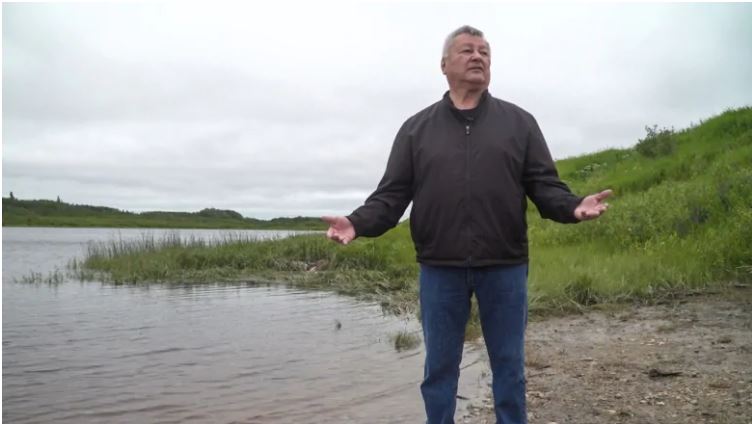People in Blind Bay are being asked to conserve water due to possible contamination from a partially submerged houseboat. The CSRD said the incident with the houseboat occurred Sunday, July 23, and, “out of an abundance of caution,” the Cedar Heights Water System intake would be shut down until water testing could be done Monday.
Vavenby water system back on line following diesel spill
Another crash has occurred on Highway 5 north of Kamloops involving a commercial truck. The latest incident on Saturday, Feb. 18, led to an undetermined amount of diesel spilling into the North Thompson River north of Avola. Fortunately, the spilled diesel was contained near the site of the crash, with the Vavenby water system back to normal operations after having its water intake closed earlier in the day as a precaution.
Saskatoon 1 step closer to designated spot where people can spread ashes of loved ones
A designated location in Saskatoon for people to spread the ashes of loved ones along the river is one step closer to fruition. A city committee has recommended council move forward to plan and construct a dedicated scattering location, which could be at Meewasin Park near the north end of Spadina Crescent. Funding for the project would be part of the 2024-25 budget deliberations. If approved, construction on a new permanent site is tentatively set for 2025.
Second water intake could cost Cornwall $40 million
The mood at Cornwall city council was somber during a special meeting on Monday evening. Council received two presentations — by EVB Engineering and Jacobs Engineering Group —regarding the environmental assessment study associated with the development of a second raw water intake for Cornwall’s municipal water system. Currently, the city’s only source of water is from a 65-year-old underwater intake to the west of the Moses-Saunders Dam. From there, the water is gravity-fed from Riverdale all the way to the water purification plant at 861 Second St. W.
How much water should you really be drinking? A look at the dos and don'ts to keeping cool this summer
In the summer, our body is sweating more because of hot weather, so it becomes even more critical to stay hydrated with this increased water loss, says Samantha Blizzard. "Keeping hydrated is immensely important for more reasons than I could list," says Blizzard, a registered dietitian working for the Atlantic Superstore in Charlottetown and Montague, P.E.I. Water makes up approximately 70 per cent of our body. Our organs need water to function properly, and it helps deliver nutrients to our cells, which is crucial for maintaining optimal energy levels, she explains.
'We matter like all other Canadians': Tataskweyak Cree Nation calls on Ottawa to restore clean drinking water
Tataskweyak Cree Nation (TCN) is one of more than 55 First Nation communities in Canada under a long-term boil water advisory and has been for the last four years. On Thursday, the First Nation’s Chief and NDP MP Niki Ashton called on Ottawa to restore clean drinking water. TCN has said the Canadian government has failed to deliver on the promise of clean drinking water for their community. “We can no longer ignore it anymore. We have to fight for our people," said TCN Chief Doreen Spence. "We matter like all other Canadians." Spence said they are left with no choice but to bring the issue – a basic human right – to the United Nations.
8-10 years to fix Attawapiskat water problems, chief estimates
It's been one month since Attawapiskat First Nation declared a state of emergency over its poor water quality. The measure was taken in the northern Ontario community due to high levels of trihalomethane (THMs) and haloacetic acids (HAAs) in the water the residents use for bathing and cooking. The fly-in community has a separate system for its drinking water.








